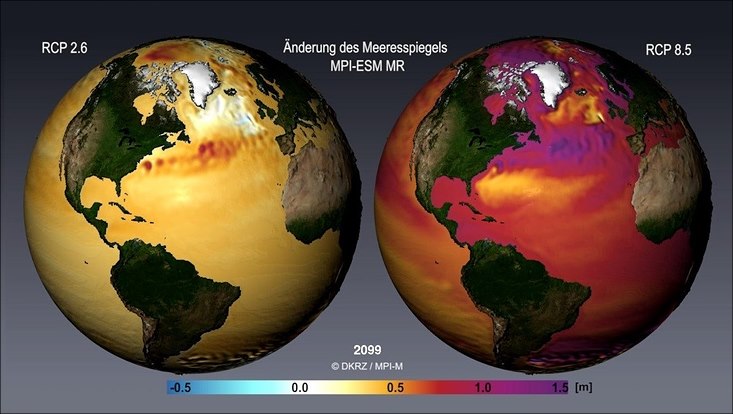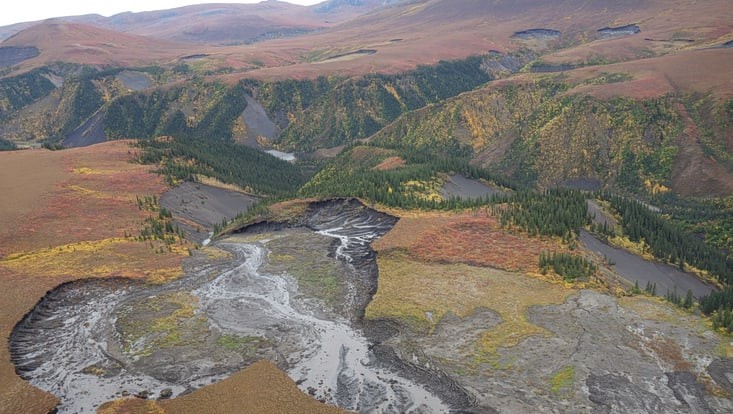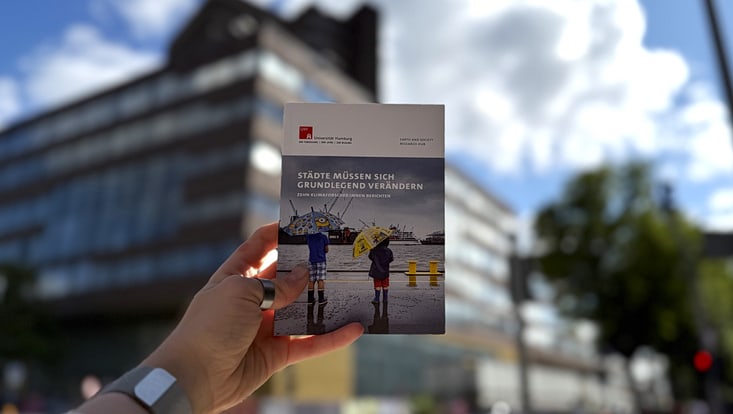Long-awaited tool for climate researchUniversität Hamburg develops comprehensive new climate model
14 December 2021, by Stephanie Janssen

Photo: DKRZ/MPI-M
An ongoing research project at Universität Hamburg is intended to achieve a quantum leap in the quality of climate modeling. For the first time, all available measuring and observational data gathered worldwide over the past 50 years will be integrated. The German Research Foundation (DFG) has provided 1.25 million euros of funding.
Oceanographer Prof. Detlef Stammer from Universität Hamburg’s Center for Earth System Research and Sustainability (CEN) was personally awarded the funding as part of a Reinhard Koselleck project. Through this type of project, the DFG supports especially innovative and (in a positive sense) high-risk research initiatives.
“In this new climate model, all of the measuring data and observational data currently available will be integrated to make it more realistic,” says Stammer. Accordingly, all data from the past 50 years on the atmosphere, ocean, soil and sea ice – e.g. the temperature, density, precipitation and carbon content – gathered around the world and in countless time periods will be fed into the model. A massive undertaking.

And the project already has a name: EARTHRA, which stands for Earth system reanalysis. The goal is to simulate Earth’s climate over the past 50 years in such a way that the simulation matches all actual climate observations as closely as possible. If successful, it would offer a veritable treasure trove of information on our planet’s recent past, since the model would also be able to compensate for missing field data. In addition, it would substantially improve climate forecasts and allow interrelations and teleconnections between different climate phenomena to be researched more systematically than before. “If we succeed, it will mean an enormous step forward for global climate modeling. The scientific community has been waiting for a tool like this for a long time. I’m very excited that we can now get started,” says Stammer.
Yet this approach also involves some daunting methodological challenges. An Earth system model is composed of several sub-models. There’s a model for the atmosphere, one for the ocean, for the land surface, for ice, for vegetation – and for material cycles like the Earth’s carbon cycle. For each sub-model, the relevant physical or chemical processes are described as precisely as possible using mathematical formulas. In complete Earth system models, the various sub-models are coupled. Yet even the most detailed model is invariably a simplification of the real world, leading it to produce errors. It’s also possible that, in some cases, there will be “frictions” between the newly added data inputs; i.e., that two sources will contradict one another, indicating problems with the model.
“We’re going to use these discrepancies to further improve the computer model, for instance by making targeted adjustments to specific parameters,” Stammer explains. “To check the quality of these improvements, we can shut off the input data for part of the global model – say, data on the surface temperature of the ocean. The model then has to simulate the missing data.”
In this way, the participating researchers will test various areas to determine which components of the global climate model still need to be improved. Thanks to the DFG funding, Stammer can offer several five-year research positions for the project.
Professor Detlef Stammer is Director of the CEN and Speaker of the Cluster of Excellence for climate research CLICCS (Climate, Climatic Change, and Society) at Universität Hamburg, and Chair of the Joint Scientific Committee at the World Climate Research Programme (WCRP).
More information
About the Reinhart Koselleck Projects
Contact:
Prof. Dr. Detlef Stammer
Universität Hamburg
Centrum für Erdsystemforschung und Nachhaltigkeit (CEN)
Exzellenzcluster Climate, Climatic Change, and Society (CLICCS)
Tel: +49 (0) 40 42838 5052
Email: detlef.stammer@uni-hamburg.de
Stephanie Janssen
Öffentlichkeitsarbeit/Outreach
Universität Hamburg
Centrum für Erdsystemforschung und Nachhaltigkeit (CEN)
Exzellenzcluster Climate, Climatic Change, and Society (CLICCS)
Tel: +49 (0) 40 42838 7596
Email: stephanie.janssen@uni-hamburg.de


